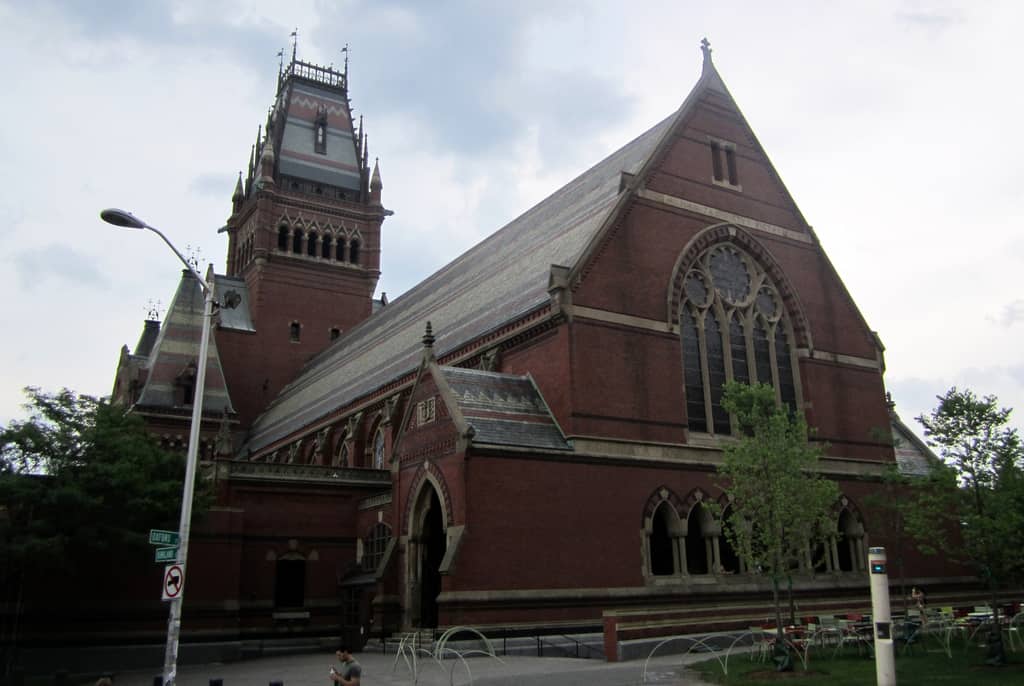This past September, during my second year at the University of Toronto, I was given an opportunity to go and visit an old friend at Harvard University. I wondered how my experience at U of T compared to the experience of a Harvard student. So, I did some background research; I looked into the academic history, social scene, and day-to-day events at the legendary American institution.
Like the University of Toronto, Harvard consists of several graduate and professional schools — law, medicine, governance, and dentistry — and houses. Harvard College is intended primarily for undergraduates; it is located a few subway stops from downtown Boston in Cambridge, Massachusetts, and was founded in 1636.
The entire undergraduate college is comprised of roughly 6,000 people, compared to our tri-campus total of about 67,000 undergraduates. I discovered that while Harvard’s size, geography, and demographic may differ from ours, its students and faculty are quite similar.
Harvard’s graduate schools educate almost three times as many students as the undergraduate college, which explains why the school is still considered a mid-sized university. Geographically, it is actually quite small — I could walk through it in less than five minutes — and is swarmed by tourists, not students. I would have assumed that, because of the school’s enclosure and distance from downtown, it would be a quiet place to study or dream up big ideas, but there is seemingly no escaping the droves of tourists flowing through the campus daily.
Harvard’s campus is quite suburban in comparison to downtown Boston or Toronto. While reminiscing with my friend about our fun nights back in Toronto, he told me about how disappointed he was with Cambridge. Both of us grew up downtown with ample opportunities for entertainment within arms’ reach, so when my friend came to Cambridge, he was quite disappointed with the campus’ suburban feel. While the college is located in a beautiful and historical part of town, it does not offer many opportunities for students to relax and entertain themselves on nights off.
Students are able to live in the historically decorated residence rooms at Harvard throughout their undergraduate degrees. Compounded with the higher legal drinking age in the United States, the lack of available entertainment outlets strengthens Harvard’s residence culture, similar to the college structure at U of T. Although the in-residence social life at Harvard is strong, it lacks the big-city attractions and night life that Toronto offers.
Everyone I had the chance to meet there fulfilled the Harvard stereotype: academically and socially adept, and overwhelmingly from the continental United States. Only 10 per cent, or roughly 600, of Harvard undergraduates are international students compared to our 15 per cent or roughly 10,000. As much as I’d like to say that Harvard students hide under rocks and study their whole lives, they are actually just like us. These students would never compromise their education or jeopardize their college experience, which is very similar to me and my friends. They drink gin and tonics while cracking jokes about philosophers, they “ooh” and “ah” over famous Harvard students while stalking them on Facebook, and sometimes they also forget how to spell “actually” while their friends are glued to the finale of Breaking Bad.
From interviewing the amazing people I met, it seemed clear that their problems with Harvard focus around the fact that, for once in their lives, they do not get everything they work hard for. High school was easier for them, and few came from financially unstable households. They were always great at many things, and usually got what they felt they deserved based on their strong efforts. Reality hits in university no matter where you go; things are expensive, challenging, and competitive. It is hard to make an acapella group or a sports team at Harvard, it is hard to be at the top of even one class, and it is hard to be the richest or most famous person at school. Nevertheless, if Harvard students want to complain about getting lost in the crowd, having a lot of competition, and living out of the library, then all I can say is preach it — we know how you feel.
Although U of T has an impressive reputation, especially in North America, Harvard’s reputation is much larger — so large, I realized, that it is bigger than the school itself. It is bigger than the students and their achievements; it is bigger than the campus buildings. Everyone at Harvard was at the top of their prestigious high schools — valedictorians with 99 per cent final averages and 2400-point scores on their SATs. Imagine a place where you know everyone is not just smart, but incredibly smart, with bright futures ahead of them. Everyone works hard because that is how they got there in the first place, so there is no stigma around it. Everyone is proud of their school because of its rich reputation and history. It is different than U of T, but not by miles, or even kilometres.
Christina Atkinson is a second-year student at University College


